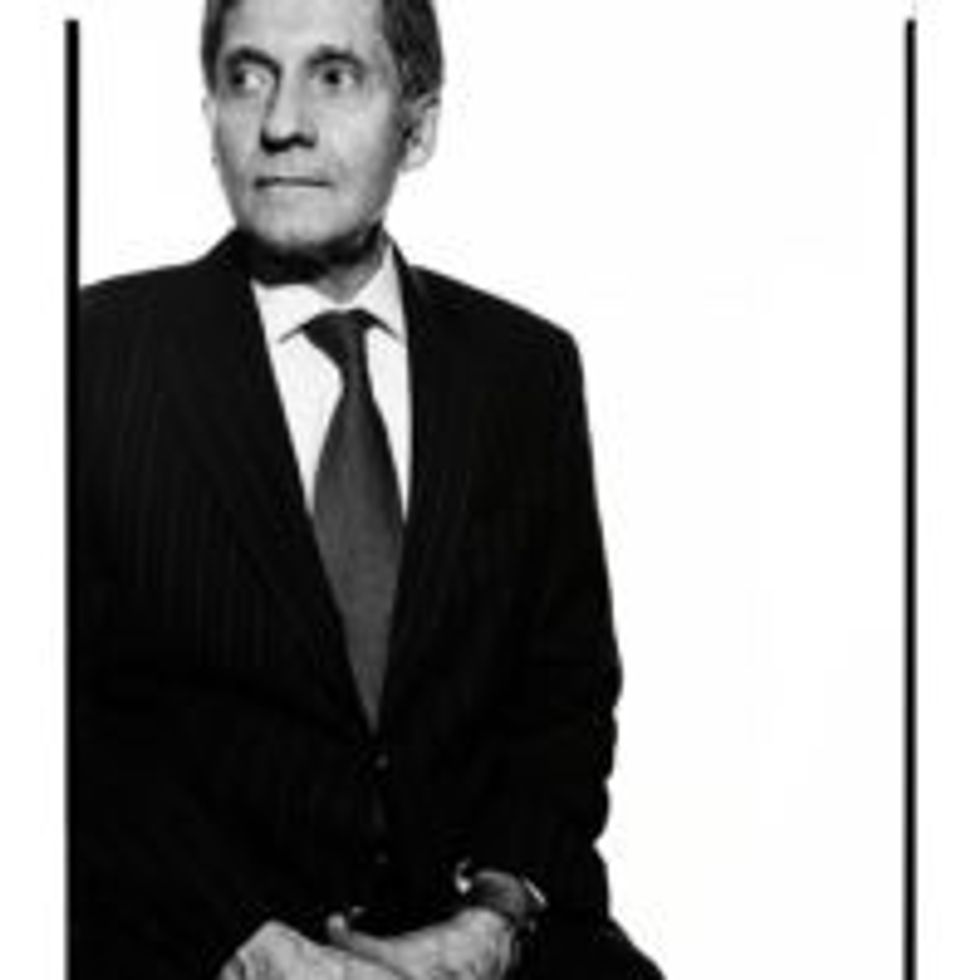Bottom Line: In the closest South Korean presidential election in decades, Yoon Suk-yeol, a former prosecutor, recently defeated the ruling party candidate, Lee Jae-myung. Yoon ran on a platform promising to prioritize South Korea’s relationship with the U.S. while seeking “a working relationship based on mutual respect and cooperation” with China. A foreign policy novice, Yoon’s approach is seen as a departure from his predecessor, President Moon Jae-in, who was said to be tilting South Korea toward China. Yoon also is thought likely to pursue a tougher stance toward North Korea.
Background:
- “Yoon secured victory with just over 275,000 votes and a differential of 0.8 percent. Of voters in their 20s, 58.7 percent of men voted for Yoon while 58 percent of women voted for Lee. This illustrates the deep divide in Korean society, especially among younger demographics,” says Dana Kim, Korea Policy Scholar at CSIS.
- In an article in Foreign Affairs earlier this year, then-candidate Yoon accused the Moon administration of being “guided by a parochial and shortsighted conception of the national interest.” Lamenting Moon’s failure to craft a clear foreign policy, Yoon wrote, “A deeper alliance with Washington should be the central axis of Seoul’s foreign policy. …Seoul should seek a comprehensive strategic alliance with Washington, and the nature of U.S.-South Korean bilateral cooperation should adapt to the needs of the twenty-first century.” Yoon went on in the article to indicate his intent, if elected, to reappraise South Korea’s relationships with China, North Korea, and Japan.
- After the election, the South China Morning Post reported that Yoon will likely face an almost immediate crisis with North Korea on taking office in May. The Post noted that the DPRK , “appears to be preparing to launch a spy satellite and has suggested it could resume testing of long-range intercontinental ballistic missiles or nuclear weapons for the first time since 2017.”
- China also features prominently among the issues Yoon addressed during the election campaign. The New York Times noted that while Yoon’s predecessor tried to balance between the U.S. and China — an approach known as “strategic ambiguity ” — Yoon said he would show “strategic clarity.” He called the rivalry between the two great powers “a contest between liberalism and authoritarianism.”
- Observers have said that Japan will rank among the key tests of Yoon’s leadership. As the Washington Post reported, Yoon will be challenged to “start thawing the icy relationship between South Korea and Japan,” especially as the Biden administration ”has emphasized the need for the U.S., Japan and South Korea to work more closely together to counter China’s rise.”
The Cipher Brief tapped Ambassador Joseph DeTrani, who served as Special Envoy to Six Party Talks with North Korea as well as former Director of CIA’s East Asia Operations Center and Dana Kim, Korea Policy Scholar in the Office of the Korea Chair at the Center for Strategic and International Studies (CSIS) to put some context around what this victory likely means for South Korean-U.S. relations.
Ambassador Joseph DeTrani, Former Envoy for Six party Talks with North Korea
Ambassador Joseph DeTrani is former Special envoy for Six Party Talks with North Korea and the U.S. Representative to the Korea Energy Development Organization (KEDO), as well as former CIA director of East Asia Operations. He also served as the Associate Director of National Intelligence and Mission Manager for North Korea and the Director of the National Counter Proliferation Center, while also serving as a Special Adviser to the Director of National Intelligence. He currently serves on the Board of Managers at Sandia National Laboratories. The views expressed represent those of the author.
Dana Kim, Korea policy scholar in the office of the Korea Chair, CSIS
Dana Kim is a Korea policy scholar in the Korea Chair at the Center for Strategic and International Studies (CSIS), where she manages satellite imagery analysis projects on North Korea’s weapons of mass destruction (WMD) program and health infrastructure. She has authored publications on general Korea policy issues and the U.S.-ROK alliance in addition to her research on North Korean WMD facilities. Prior to joining CSIS, she completed a fellowship with Carnegie Mellon University’s Institute for Politics and Strategy, where she directed the research lab while leading projects on U.S. grand strategy, military strategy, national security, and foreign policy.
The Cipher Brief: Given the narrowness of his electoral victory, in what ways might Yoon Suk-yeol be constrained in his foreign policy and domestic agendas?
Ambassador DeTrani: It was a narrow victory for Yoon Suk-yeol but I doubt the narrowness of the victory will prevent him from pursuing his domestic and foreign affairs agenda. The economy and unemployment — especially for the younger generations — are issues of immediate concern. Dealing with a threatening North Korea and ensuring excellent bilateral relations with the U.S. are his foreign affairs priorities.
Kim: Unifying the country will be one of Yoon’s biggest challenges in addition to stabilizing real estate prices and addressing high unemployment rates. Being a political novice with lack of knowledge in foreign policy will be a challenge in itself as he navigates the presidency. Meanwhile, the opposition party maintains an overwhelming majority in the National Assembly which will pose limitations on his domestic agenda, starting with appointing a prime minister.
The Cipher Brief: Yoon’s statements indicating that ties to the U.S. are at the center of his administration’s foreign policy, seemingly would be welcomed by Washington. What new opportunities, and complications, does Yoon’s approach pose for the Biden administration?
Ambassador DeTrani: I think the Biden Administration welcomes Yoon's priority to focus on South Korea's relationship with the United States. It's an opportunity to ensure that we are in sync in our joint approach to resolving issues with North Korea, while confirming the importance of the United States military presence in South Korea and the need to ensure that the ROK-US Combined Command moves forward smartly, maintaining a schedule of joint military exercises for combat readiness purposes and determining if the deployment of the Terminal High Altitude Area Defense (THAAD) missile defense system, which caused considerable tension with China, should be enhanced with additional THAAD deployments, given North Korea's eleven missile launched in 2022, and Kim Jong-un's apparent race to build more sophisticated ballistic missiles. Trade, also, will continue to be a core element in our bilateral relationship. A possible challenge will be to get South Korea to join the Quad and play a more active role on issues dealing with a Free and Open Indo-Pacific.
Kim: South Korea is a beacon of democracy in Asia and is a crucial ally for the United States to maintain its influence in the region. Yoon’s plan to cooperate with the US across multiple sectors – semiconductors, EV batteries, AI, biotech, and aerospace, to name a few – will be critical for the Biden administration’s plans to strengthen its economic alliance with South Korea. He is also likely to join the Indo-Pacific Economic Framework, which will play a critical role in achieving Biden’s larger Indo-Pacific strategy. Yoon’s hopes to thaw relations with Japan will also provide opportunities for increased trilateral cooperation between the US, Japan, and South Korea to address North Korea.
Yoon is keen on continuing joint military exercises with the United States, which will be ill-received in Pyongyang. Though Washington and Seoul’s goals may be more aligned, opportunities for dialogue and diplomacy will likely diminish with the new Yoon administration. Apart from the North Korea issue, the Biden administration will also have to take into account South Korea’s highly nuanced relationship with China. Yoon’s push for additional THAAD missile deployments, which resulted in acute economic retaliation against South Korea when it was first installed in 2017, may antagonize China and contribute to intensifying US-China competition.
The Cipher Brief: In what ways might Yoon pursue a “reset” of relations with China, the ROK’s largest trading partner?
Ambassador DeTrani: The Yoon Administration will work hard to ensure that relations with China are good, and that China continues to be the ROK's largest trading partner. There was tension when the ROK deployed the THAAD missile defense system and China used its economic leverage with Seoul — closing LOTTE department stores and halting tourist visits to South Korea — to show its unhappiness. Thus, the issue of the military threat from North Korea and the need for the Yoon Administration to protect its citizens with a strong military and a sufficient missile defense capability to address the threat from the North could — and in my view should — be a subject for discussion with Beijing. I'm not sure this needs to be a reset in relations. Rather, it's a better understanding of Yoon's national security priorities.
Kim: Yoon has criticized the Moon administration’s approach of strategic ambiguity between the US and China and claimed that he will build a relationship based on mutual respect. While additional THAAD deployments still pose a risk of economic retaliation, it is how Yoon plans to “reset” relations. In essence, it would scrap Moon’s “three no’s”: no additional THAAD deployments, no participation in a US-led global missile shield, and no creation of a trilateral military alliance involving Japan. By nullifying this policy, he hopes to create space for less deferential policies while reassuring China on misconceptions of THAAD through regular dialogue.
The Cipher Brief: North Korea will remain an abiding concern for the new administration. Will Yoon’s perceived “tough approach” contribute to rising tensions? Will the U.S. welcome or seek to temper Yoon’s more stringent attitudes on security and negotiations with the DPRK?
Ambassador DeTrani: North Korea may not like some of the rhetoric from Yoon, but I doubt that it will lead to rising tension. In fact, the Moon Administration's efforts to assuage North Korea's concerns didn't result in any progress in inter-Korean relations or denuclearization. So, North Korea will focus on substantive issues, like sanctions and joint military exercises, to decide on a policy for dealing with Yoon. I doubt that the United States will want to temper Yoon's stated approach for dealing with North Korea. In fact, this more hawkish approach may get Pyongyang to realize that with 27 years of failed negotiations, it's time for them to be serious about negotiations, starting with coming to the table to negotiate.
Kim: Conservative South Korean presidents are not in North Korea’s interests and Kim Jong-un has already tested an ICBM system that the US has deemed a “serious escalation” since the election. Yoon may take a tougher line on North Korea compared to his predecessor, but he has maintained that he will seek to continue inter-Korean dialogue and provide unconditional humanitarian aid to North Korea. Despite the possibility of a rise in tensions, Washington will welcome aligned US and South Korean policies. Yoon’s ambitions to expand defense and deterrence capabilities in conjunction with the US alliance will enhance the US’ readiness posture on the Korean peninsula.
The piece includes research, analysis and reporting by Cipher Brief Analyst Ken Hughes
Read more expert-driven national security insight, perspective and analysis in The Cipher Brief
















